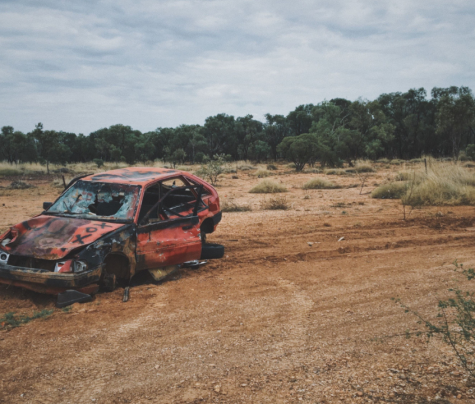
“Understanding the Lawsuits for Wrongful Death: A Step-by-Step Handbook for Families” is an extensive guide that helps families with the complex legal process after the sudden death of loved ones. This guide offers a concise explanation of the most important elements in a lawsuit for wrongful death, which includes determining who is eligible to bring the suit, proving negligence, knowing the statute of limitations, and understanding the role of insurance companies.
The guide also provides a step-by-step procedure for filing a wrongful death lawsuit, from negotiation to trial, and addresses the common issues that could occur during the process. Through providing insightful information and practical advice, the guide aims to help families through this challenging time and assist them in seeking peace and closure.
What Is A Wrongful Death Lawsuit
A wrongful lawsuit for death is an action that a wrongful death lawyer files if the death of a person happens due to the carelessness or unjust action of another. It’s a civil matter that seeks to hold the person responsible for their actions answerable and to compensate the family members who survived for the loss.
The cases of wrongful death can result from a myriad of causes, such as car accidents, workplace accidents, medical malpractice, or even criminal actions. The responsibility of proving that the accused’s actions led directly to the death lies with the plaintiff in an unjustified death lawsuit.
This means proving that the defendant was bound by an obligation of care to the deceased. They are liable for breaching the duty due to inattention or deliberate misconduct and that the breach caused the death directly. The damages that took place in a wrongful death lawsuit could include reimbursement for funeral costs, medical bills, lost earnings, companionship loss, as well as pain and suffering.
The wrongful death process can be a bit complicated and emotional for the families affected. It’s important to seek legal advice from an experienced wrongful death lawyer to better understand the legal process and protect the rights of the grieving family. It is best to work with a lawyer local to you such as a Philadelphia wrongful death lawyer. They will have the best information regarding the laws in your state.
Who Is Liable To File An Unjustified Death Lawsuit?
When you decide to file an action for wrongful death, knowing who is eligible to file this legal proceeding is crucial. In a wrongful death lawsuit, the immediate family members, including spouses, children, and grandparents of the expired parents, are eligible to sue for damages.
However, the specific rules concerning eligibility can differ based on the area of jurisdiction. It is also important to know the time limits to file an unfair death lawsuit since there are usually deadlines to complete.
Eligible Family Members
To initiate a wrongful death lawsuit, eligible family members need to understand their rights and responsibilities. When assessing eligibility for compensation and legal obligations, consider these key factors:
Immediate family members, including spouses, children, and parents, are typically the primary individuals who can pursue a wrongful expiry lawsuit. They are often the most affected both financially and emotionally due to the loss of a loved one.
In some cases, dependent family members may also be eligible to file a wrongful death lawsuit. This group can include grandparents, siblings, or other relatives who rely on the deceased for financial support.
Adopted children and adoptive parents can also file a wrongful death case. It recognizes their legal relationship and they might face similar emotional and financial challenges as biological kiths and kin.
Understanding eligibility for filing a wrongful death lawsuit is essential for families seeking justice and compensation for their loss.
Time Limitations
The statute of limitations determines the time limit within which eligible family members can file a lawsuit for wrongful death. The time limits vary between states. It is, therefore, essential to know the specific legal requirements for the state of filing the lawsuit. The clock generally begins at the time of death of the person who died.
It is crucial to remember that if someone fails to file the lawsuit within the stipulated period, the court could dismiss the case. This ultimately prevents family members from seeking legal remedies. A consultation with an experienced attorney can help. Moreover, families can navigate time restrictions and protect their rights in a wrongful death case.
Establishing Negligence: Collecting Evidence
When seeking a death lawsuit, the basis for establishing negligence is the careful collection of evidence. It is essential to gather enough evidence to prove responsibility and hold the accountable person responsible for the actions they took. There are three main steps in gathering evidence to prove a claim for wrongful death:
Documenting the incident:
This involves gathering police reports, witness statements, and any footage or photographs. These documents are a good starting point for understanding the events that led up to the incident. It may help determine the extent of any negligence.
The collection of medical records:
Getting medical records is crucial to establish that the death was the result of the defendant’s negligence. The records could be autopsy records, hospital reports, and any other pertinent medical evidence supporting the assertion.
Expert opinions:
Consulting experts in the relevant fields can give valuable insight into the situation. Experts like accident reconstruction experts, forensic pathologists, or medical professionals can analyze the evidence. Furthermore, they offer professional opinions regarding the causes of death as well as the negligent conduct of the defendant.
Knowing How To Apply The Statute Of Limitations
It is essential for families who intend to file a wrongful death lawsuit to have a clear understanding of the statute of limitations. This legal provision determines the period within which they have to take legal action. In case a family member dies due to someone’s involuntary or reckless behavior, it is crucial to seek legal counsel from a wrongful death lawyer promptly. This ensures the filing of the case within the specified time limit.
The time limit for filing a legal suit varies in different states, typically ranging between one to three years, although some states have shorter or longer timeframes. It is crucial to ensure that a lawsuit is filed within the designated time frame. Neglecting to do so may lead to the case’s dismissal, resulting in the loss of the opportunity to claim compensation.
There are some exceptions in the law of limitations, which can extend or stop the time limit to file a wrongful death lawsuit. This includes the discovery rule, which permits the clock to begin when the causes of death were discovered instead of when the death occurred. Other exceptions could apply when the defendant is mentally sick or minor. Also, if the death was the result of medical negligence.
Families need to find legal counsel who has experience in wrongful death cases. The goal is to understand the complexities regarding the limitations of the statute. A lawyer can ensure that they submit all the necessary paperwork within the stipulated time frame. They must also assist families in understanding their rights and choices. With legal advice, families can safeguard their rights and seek justice for their loved ones’ death that was not their fault.
The Role In The Role Of Insurance Companies In Wrongful Death Cases
Insurance companies are a key factor in cases of wrongful death because they are usually responsible for settling claims to the family members who lost a loved one. If a death caused by negligence occurs, the insurance company representing the party at fault could be held accountable for the damage. This could include financial reimbursement for medical bills and funeral expenses, income loss, and emotional stress.
Insurance Company Liabilities
Insurance companies are a key factor in determining the liability in the case of wrongful death. In the case of the liability of insurance companies, there are several important things to consider:
Claim Denial
Insurance companies may challenge the validity of a wrongful death claim, potentially leading to its denial. This situation can be highly stressful and emotional for families seeking reparation for their loss.
Investigation Process
Insurance companies conduct thorough investigations into the circumstances of the death. This process may include interviews, reviews of medical records, and consultations with experts. Families should be prepared for this procedure and collaborate to achieve a fair outcome.
Settlement Negotiations
Insurance companies may propose a settlement to the deceased’s family. Families need to be informed about any such offers and consult with a legal advisor to determine if the settlement adequately compensates for their loss.
The process of navigating insurance company disputes or investigations may be a challenge for families who have suffered losing a beloved one. Legal guidance can ensure their rights are safeguarded and they get the due amount.
Compensation For Families
Finding a fair compensation amount is an essential aspect for families in the case of wrongful death, and insurance companies play an important part in determining the final result. If a loved one passes away because of the negligence or deliberate actions of a person, the family could be entitled to financial assistance to ease the burden of the loss and aid in their emotional healing.
In cases of wrongful death, insurance companies frequently get involved since they are accountable for providing insurance coverage to the responsible party. Families can file a claim with the insurance company to claim compensation for various losses that may include medical expenses, funeral expenses, income loss, and loss of friendship.
The company’s assessment of the claim and the subsequent settlement negotiations will significantly impact the amount of compensation a family receives. Families need to be aware of their rights and collaborate with skilled attorneys to navigate the complicated process of working in a dispute with insurance companies in the case of wrongful death.
Calculating The Amount Of Damages: Economic And Non-Economic
The process of calculating damages in wrongful death lawsuits requires weighing both economic as well as non-economic losses. The goal is to offer an amount that is proportional to the financial and emotional pain suffered by the family members who survived. Three important factors to take into consideration when deciding on damages:
Potential for future earnings
Potential for future earnings loved ones could result in losing future earnings and financial stability for the remaining family members. This is not just the current earnings of the dead but also the potential income they might have earned throughout their life. Calculating these damages requires evaluating the deceased’s education level, working history, and earnings capacity.
The loss of support and companionship
The loss of a loved one can leave a deep emotional impact on the remaining family members. Loss of companionship, guidance, love, and emotional support could be devastating. Although it can be difficult to determine a value to these losses, judges consider the effect on the family’s emotional well-being and the quality of life.
Non-economic damages, in addition to economic loss, are intended to compensate for intangible losses like emotional and physical anxiety and the loss of enjoyment of life. These damages are intended to recognize the emotional burden and long-lasting effects of the wrongful death of the family members.
Employment Of A Wrongful Death Attorney
To ensure that families receive the best legal assistance during the wrongful death litigation process, it is imperative to engage the services of a skilled and experienced attorney who specializes in such cases. While it can be challenging to find a qualified lawyer, it is crucial to work with an expert who can navigate the complex legal system and advocate for justice for the family.
In the search for an attorney for wrongful death, families must consider various aspects. First, they must choose an attorney with a demonstrated track record of success dealing with wrongful death cases. Expertise in this particular area of law is essential because it guarantees that the lawyer is conversant with the intricacies and nuances of these cases.
Thorough research and consultation are essential when seeking experienced lawyers who are ready to handle cases involving wrongful death.
Families should also ask about the attorney’s expertise in negotiating settlements and representing the clients before the courts. It is also important to consider the attorney’s reputation within the legal profession and with previous clients since this will provide a sense of their competence and professionalism.
Another important aspect to consider when hiring a wrongful-death attorney is the question of legal fees. Families must discuss this issue in advance and understand the attorney’s fee structure before signing an agreement. Certain attorneys might work on a contingent basis, meaning they are only paid when they win the case. Other attorneys might charge an hourly rate or a flat rate.

The Procedure Of Filing A Wrongful Death Lawsuit
The process of filing a unjust death lawsuit is an officialization of the legal claim to get justice and compensation for the loss of loved ones due to inattention or deliberate wrongdoing. The process can be complicated and overwhelming for grieving families. However, understanding the steps involved may provide some direction and clarity.
Establishing Liability:
The initial step to filing an action for wrongful death is establishing liability. This involves gathering evidence to prove that the defendant’s negligence or actions directly contributed to the death of the victim. This could involve gathering witnesses’ statements, medical documents, accident reports, and other pertinent documentation to prove the assertion.
Damages For Wrongful Death:
Once liability is established, the next step is to determine the amount of damages survivors of the family members have the right to. Damages for wrongful death can comprise reimbursement for medical expenses, funeral expenses, loss of income, and companionship loss, as well as suffering and pain. It is essential to consult a seasoned lawyer who can accurately evaluate the damage and ensure the family is compensated fairly.
The Lawsuit Is Filed:
Once the liability has been established and damages have been determined, the Lawsuit is filed. The process involves drafting and filing an appropriate complaint in court, including the defendant’s name and description of the allegations. The defendant is then given an exact time to respond to the complaints.
Lodging a wrongful death lawsuit can be a challenging and intricate process. Nevertheless, with the support of a skilled legal representative, affected families can pursue accountability and monetary damages for the distressing loss they have suffered.
The Process Of Negotiating A Settlement Or Going To Trial
The parties involved in a lawsuit for wrongful death can choose to negotiate a settlement or go to Trial to find a resolution of justice. Each has its advantages and disadvantages.
Settlement negotiation is a method that involves the parties, together with their lawyers, attempting to agree without having to go through a trial. This method can save time, money, and emotional stress. In settlement negotiations, parties exchange information and discuss the issues to evaluate whether they have a strong or weak argument, then make offers and counter-offers. It is crucial to approach settlement negotiations with a knowledge of the damage and the legal foundation for the claim. Skilled negotiators can assist the parties in reaching a positive outcome in this negotiation.
However, a Trial is when the case is presented in the legal court. This allows for an official argument and evidence and a judge or jury deciding on the final decision. The preparation for Trial involves gathering evidence, examining witnesses, and preparing an effective legal strategy. It is crucial to collaborate with skilled trial lawyers who can effectively argue the case and fight on behalf of those who have died, as well as their family members who survived them.
In the end, the decision to settle a dispute or proceed to Trial is based on various factors, including the case quality, the possibility of damages, and the outcome desired by the parties. Families must think through their choices and seek out the advice of legal experts to make educated decisions.
Common Challenges To Wrongful Death Lawsuits
In the course of pursuing a wrongful death lawsuit, families are often faced with typical obstacles that could affect the outcome of the case. One of the biggest hurdles is proving the burden of evidence, which is to provide enough evidence to prove that the defendant’s negligence or actions directly contributed to the death.
Furthermore, time limitations can pose an obstacle since wrongful death lawsuits must be filed within a time frame that varies between states. Families may also have issues determining the most appropriate options for financial compensation that are available to them.
Burden Of Prove
The burden of proof is essential to navigate the typical challenges of wrongful death lawsuits. For wrongful death cases, it is necessary to establish an extremely high level of evidence to establish that the defendant’s negligence or actions directly contributed to the death of the victim. Three emotional issues that families might face in the burden of proof procedure:
The emotional toll of proving liability in a lawsuit involving wrongful death can be a drain on the emotional side for families already grieving the loss of a loved one.
The process of gathering evidence and providing sufficient evidence to satisfy requirements for proof could be difficult, particularly when the circumstances leading to the death are complicated or the party responsible denies responsibility.
Expert witness testimony is required in a lot of instances of wrongful deaths; expert witnesses are required to prove the cause of death and offer professional opinions. This adds complexity as well as cost in the process of settling a legal dispute while burdening the family of the dead.
The burden of proof is a difficult job that requires the knowledge of experienced lawyers to ensure justice has been done for the grieving families.
Time Limitations
One of the most common issues for wrongful death litigation is following time limits. Limitations on time refer to the deadlines set by the law that a wrongful death suit must be filed.
The timeframes vary from jurisdiction to jurisdiction and could greatly affect the case outcome. Infractions to these time restrictions could result in the dismissal of the case and prevent families from pursuing justice for their loved one’s premature death.
Families must be able to be aware of the legal procedure and seek out an experienced lawyer to ensure that they have met all deadlines. This will increase the chances of holding responsible parties accountable and receiving the due amount.
Options For Financial Compensation
Obtaining financial compensation is an important element of overcoming the typical issues in wrongful death lawsuits. If a loved one passes away because of someone else’s negligence or deliberate actions, survivors of the family could be entitled to the financial compensation they incurred for their loss. Three options are available to receive financial compensation in cases of wrongful death:
In the event of a loss in income, Family members could be eligible to be compensated for the loss of income and financial support. This could help ease the financial burden resulting from the unexpected loss of the breadwinner.
Emotional Suffering
Compensation could also be offered for emotional pain and suffering suffered by survivors of the family. This could include suffering as well as grief and emotional trauma that result from the loss of a loved one.
Funeral and Medical Expenses
Family members may be eligible for reimbursement of the medical and funeral expenses incurred because of the wrongful death. This could ease the financial burden associated with the necessary expenses.
The options for financial compensation in the case of wrongful death can be complicated. However, with the help of a skilled attorney, families can seek the justice and financial compensation they deserve.

Altext: A Man and a Woman Sitting at the Office Table with White Paper in Front
Looking For Closure And Healing After An Unjustly Death Lawsuit
At the time of concluding a lawsuit for wrongful death, families seek closure and healing. This is also when they go through the challenging process of grieving the loss. The grieving process is a highly personal experience that differs from individual to individual. It is a mix of emotions, including anger, sadness, guilt, and anxiety. Families need to recognize that healing requires time and there isn’t a proper or incorrect method of grieving.
In this difficult time, emotional support is essential. Families can find relief by receiving support from family members, friends, and support groups. Counselors and therapists for grief can offer guidance and aid in helping people deal with their feelings. In addition, self-care practices like exercise or meditation can help in healing.
The process of closing can be a challenging element to attain following the wrongful death case. Families might have unanswered questions or doubts regarding the circumstances that led to the death of a loved one. It is helpful to find closure through actions like memorial services or projects or creating foundations or scholarships to honor the person who died.
In the end, finding closure and healing following the wrongful death of a loved one is a personal experience. It requires self-compassion, patience, and the ability to face and confront emotions. With time and help, families will eventually find comfort and move forward while respecting the memories of their beloved loved ones.
Frequently Asked Questions
What Time Does It Take To Resolve A Wrongful Death Lawsuit?
The length of a wrongful lawsuit may vary based on various factors, including the nature of the case, the number of parties involved, and the court’s timetable. It may take months or even years to agree. Families need to weigh the advantages and disadvantages of settling the case since this can speed up the process.
Can Multiple Family Members File Separate Lawsuits For Wrongful Death In The Same Incident?
Family members from multiple families can make separate wrongful death claims for the same event. However, they can also decide to file a joint lawsuit, which could be legally enforceable and impact the distribution of compensation among the plaintiffs.
What Kinds Of Evidence Are Typically Used To Prove Negligence In A Wrongful Death Lawsuit?
Medical records and expert witnesses are frequently utilized as evidence to prove the negligence of wrongful death lawsuits. Expert witnesses can provide expert opinions regarding the quality of care, and medical records can reveal the severity of injuries or medical negligence.
How Are Damages Calculated In A Lawsuit Involving Wrongful Death?
When dealing with a wrongful death case, determining the amount of damages involves a thorough analysis of various factors. These factors include the age of the expired person, their earning potential, and the emotional and financial impact on the surviving family members. The factors considered are thoroughly evaluated to determine the right amount of compensation.
Can I File An Action For Wrongful Death If The Incident Occurred Outside The Statute Of Limitations?
Filing wrongful death lawsuits after the statute of limitations has expired: is it feasible? The effect of the law of limitation on lawsuits involving wrongful deaths differs by state. Certain jurisdictions allow exceptions, like rules for discovery, tolling, or equitable estoppel, which allows for the extension of the deadline for filing.
Conclusion
In the end, knowing about the wrongful death process is essential for families who seek justice for their loved ones. The road to resolution can be a bit arduous, from establishing negligence to gathering evidence to navigating the legal system and potential obstacles.
When it comes to negotiating a settlement or pursuing a trial, the search for accountability demands tenacity. By examining the complexities of cases of wrongful deaths, families can gain information and move towards healing and achieving closure.
Read Also:
- Empowering Dreams: The Intersection Of Pathway To Citizenship And Adjustment Of Status
- What Is Embezzlement, And When Do You Need A Lawyer For It?
- How To Find A Personal Injury Lawyer In 7 Steps










1 Reply
What You Need to Know About Filing a Wrongful Death Claim in New Mexico
May 11, 2024 at 11:17 am
[…] this article, we are going to talk about how to file for a wrongful death lawsuit in New Mexico and how you can get the justice you […]
Reply